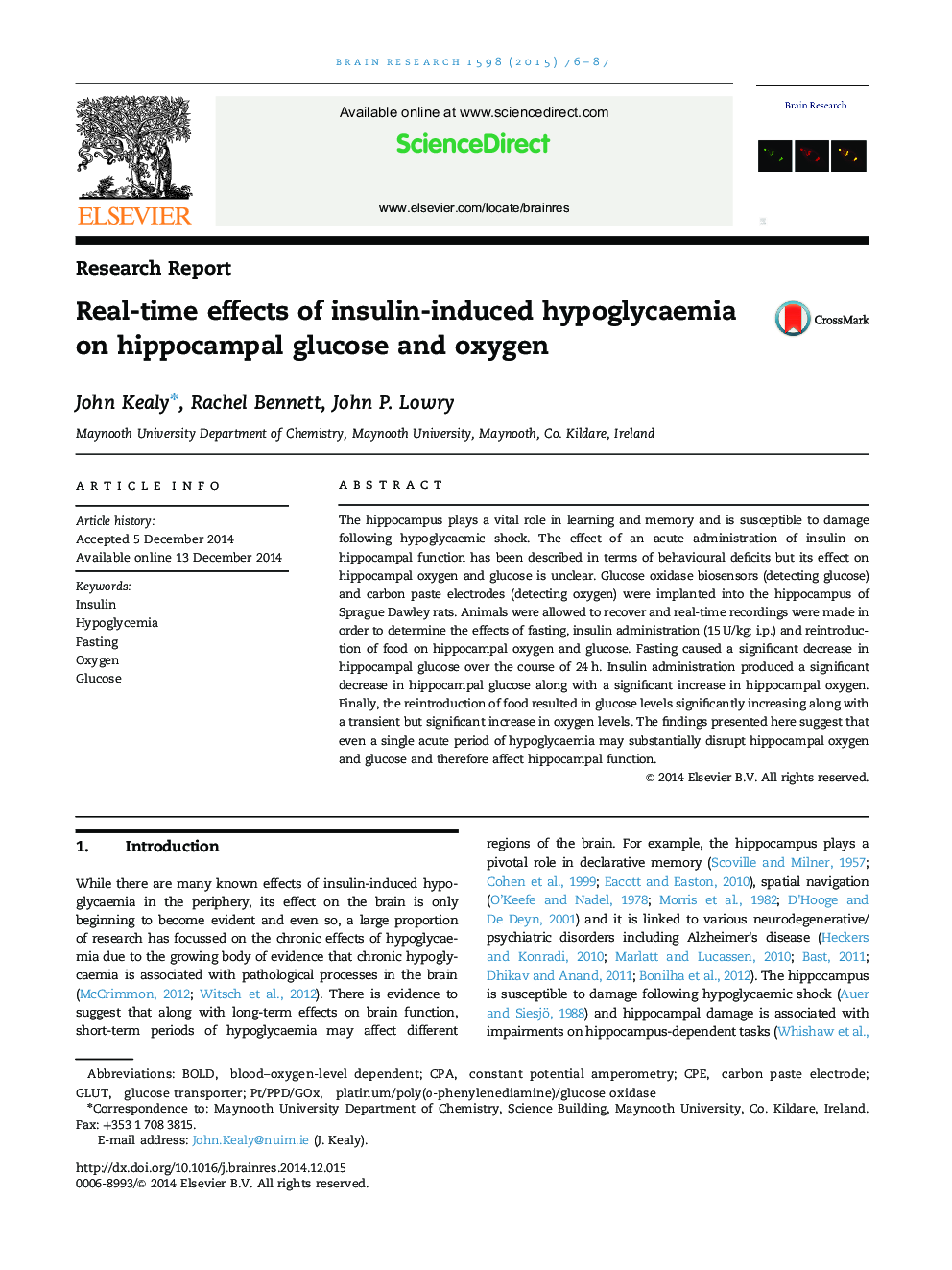| Article ID | Journal | Published Year | Pages | File Type |
|---|---|---|---|---|
| 4323966 | Brain Research | 2015 | 12 Pages |
•24 h of fasting causes a slow decrease in hippocampal glucose.•Insulin administration causes a long-lasting decrease in hippocampal glucose.•Insulin-induced decrease in glucose is accompanied by an increase in oxygen.•Access to food following insulin significantly increases hippocampal glucose.•Real-time amperometry can be used to detect slow and fast neurochemical changes.
The hippocampus plays a vital role in learning and memory and is susceptible to damage following hypoglycaemic shock. The effect of an acute administration of insulin on hippocampal function has been described in terms of behavioural deficits but its effect on hippocampal oxygen and glucose is unclear. Glucose oxidase biosensors (detecting glucose) and carbon paste electrodes (detecting oxygen) were implanted into the hippocampus of Sprague Dawley rats. Animals were allowed to recover and real-time recordings were made in order to determine the effects of fasting, insulin administration (15 U/kg; i.p.) and reintroduction of food on hippocampal oxygen and glucose. Fasting caused a significant decrease in hippocampal glucose over the course of 24 h. Insulin administration produced a significant decrease in hippocampal glucose along with a significant increase in hippocampal oxygen. Finally, the reintroduction of food resulted in glucose levels significantly increasing along with a transient but significant increase in oxygen levels. The findings presented here suggest that even a single acute period of hypoglycaemia may substantially disrupt hippocampal oxygen and glucose and therefore affect hippocampal function.
